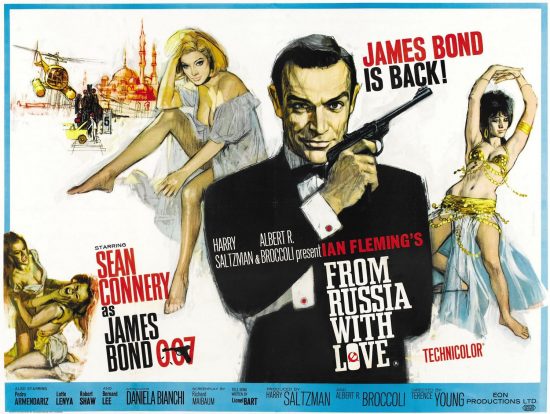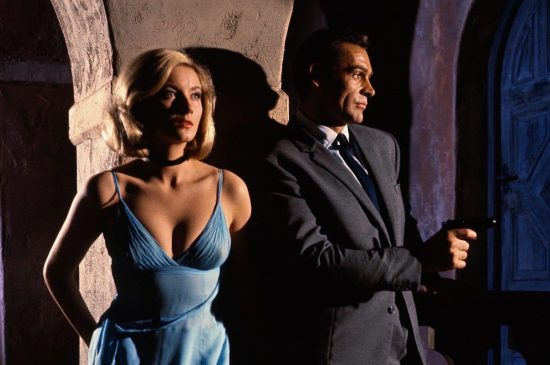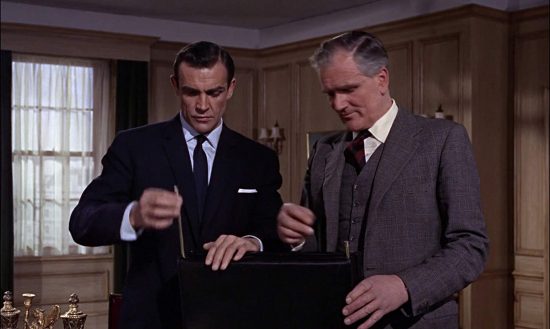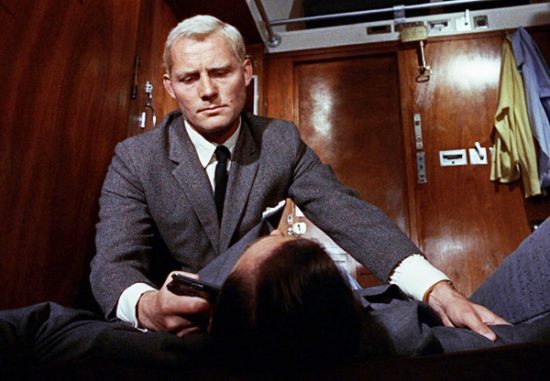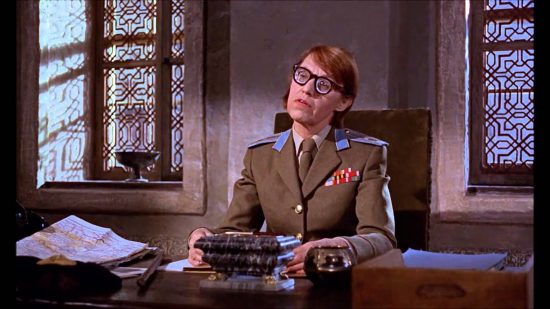Bond Blog: From Russia With Love
Released in 1963 and based on Ian Fleming’s 1957 novel, From Russia with Love is the second outing for Sean Connery as James Bond and is a marked improvement on the first film.
The more familiar elements are in place. The Bond song via Matt Monroe; the pre-titles sequences – the first of many fake killings of James Bond – the score by John Barry; the introduction of Q Branch and Desmond Llewellyn, though still not called Q and arch-villain Blofeld, stroking his pussy. The film also carries over as a more conventional sequel compared to some of the more self-contained films. There are several references to Dr No and we also get a timeline for the ending of that mission and one of the Bond girls is back albeit briefly. Connery is less narky as Bond, beginning to enjoy the mission and the travel and show off a more relaxed side.
The mission itself has Bond sent to Istanbul to retrieve a code machine being offered by a possible defector Tatiana, played by Daniela Bianchi, and once more dubbed by another actress Barbara Jefford in this case. Aided by a paternal Ali Karem Bey, Bond witnesses a girl fight in a gipsy camp and manages to spirit away Tatiana and her code machine, fully aware that it might be a trap. And indeed it is. Spectre – angered by the death of their operative Dr No – have organised everything to get revenge on Bond. Red Grant (a Rutger Hauer-like Robert Shaw) is tailing him at the behest of lesbian shoe stabber Rosa Klebb, played with bottle glass spectacles by famed Kurt Weill (who she also married) chanteuse Lotte Lenya. This piece of casting feels like Bond is also beginning to collect personalities, but Rosa is a wonderful character. Of course, there’s the usual lazy homophobia. Her villainy marked by her outsider sexuality – but there’s also something about her energy that escapes the easy constraints of villainy. Bond is always up against the heterogeneous world of characters, endeavouring to conquer the world for the Victorian daddy of M, but in reality, he has more in common with the deviants he ostensibly opposes. With his fastidious drink habits and his close attention to personal grooming, there’s something of the dandy to him and as Jeanette Winterson pointed out: he’s basically gay.
The action of From Russia with Love is much improved and the set-piece of the bombing of the embassy and the fight in the gipsy camp is imaginatively and fluently presented. There are still some gross cock-ups. Some basic continuity errors in Klebb’s visit to the training camp and when a missing shot has been replaced by a reversed shot that we then see in the normal direction. But the most accomplished sequence and the first genuinely exciting fight scene in a Bond movie comes when Bond faces off with his red wine with fish nemesis Red Grant. In the confined space of the railway carriage, the fight is exciting and brutal. The sound effects of the blows and the train on the tracks dominate the soundtrack. It also matters because Grant and Bond actually hate each other. They represent two different world views, two different classes. This is the Cold War in person, being fought between Grant’s working-class fellow traveller and Bond’s unthinkingly loyal government man. The train fight will be revisited in The Spy Who Loved Me and most recently Daniel Craig’s Spectre; the latter being the best part of that woeful film.
With that fight over, we still have some action sequences to go, but the film as a drama is essentially over. A seriously thrilling helicopter v. man chase and a boat chase which ends in explosions and burning bodies galore fill out the scene and we have a coda in the hotel with Klebb and her stabbing shoe, an image that terrified me when I saw it as a kid. Stabbing and with such a low weapon felt all too real, all too painful. The film out-earned Dr No but the next film was already being planned and the end title promise of ‘James Bond will return in Goldfinger’ promised that this secret agent was here to stay.

